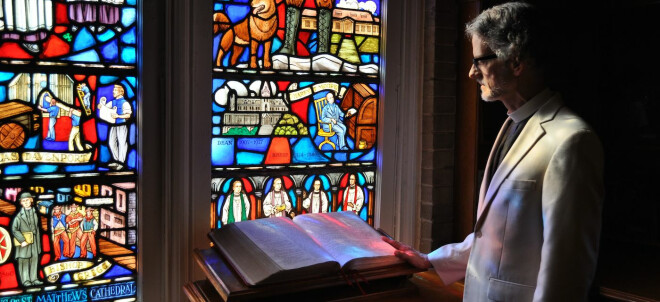Human Success

What makes a good human being? It’s a notoriously difficult question to answer.
First one notes that “good” is a peculiar sort of adjective. Compare it to, say, “red.” If we have a red apple, a red face, and a little red book, those three things have something in common, namely, redness. I might be red in the face because you caught me with Mao’s little book, or because you caught me eating an apple I was not to eat—okay; but even without such a story linking the things, you could say my red face and the red apple and the little red book had a common color.
“Good” is a different sort of adjective. A good apple is tasty to eat, but a good little book is not. Herbert McCabe has a nice contrast between a good grape and a good chair. A good chair will hold me up when I sit on it. A good grape won’t.
I once started an ethics class by asking the students what would they say if I told them I had eaten bad scrambled eggs for breakfast. “Why were they bad eggs?” Because, I said, they didn’t tie my shoes. What would you say, I asked them.
(One fellow said: “I’d say that’s why I like this class!”)
You’d say, Poor old Father Austin doesn’t know that it isn’t the job of eggs to tie his shoes.
---
A good “X” is an “X” that succeeds in doing what it is supposed to do or being what it is supposed to be. It succeeds in living up to its nature or essence. A good “X” is a good example of what we mean by “X.”
So if we know what eggs are, we know a good egg when we see it, and we can tell a good egg from a bad egg. Eggs have, as it were, definitions. Likewise apples and books and chairs.
Now back to my first question. What is a good human being? Is there something a human being is supposed to be or do? Does it have a definition? Is there a human essence or a human nature?
---
The question of saying what’s natural for human beings is notoriously hard. I’m writing this blog at 30,000 feet, on my way to visit grandchildren who live a thousand miles from my home. Until just a few decades ago, no one would have thought it natural for humans to fly and to jump across continents within hours. We aren’t made to fly, and we aren’t made to spring almost instantaneously from one place to another.
But it turns out, we can make airplanes and build up economies of organization and scale such that flying is as ordinary as taking a bus, and going from Dallas to Phoenix takes not much longer for me than it took those early disciples to go from Jerusalem to Emmaus. When I’m at home in Dallas, I like to walk wherever I can, which leads people who know me often to scratch their heads. It’s as if they want to say, “It’s not natural to walk to the doctor’s office.”
What’s natural is hard to discern, because it’s easily taken to be the same as what’s common or ordinary.
Furthermore, what’s natural is hard to figure out, because we humans are endlessly creative. We keep making new things, like airline corporations. Those new things seem to be products of our nature, insofar as we are creative and thinking. Yet we also know that some of the things we might create are unnatural, or at least anti-human-nature, in that we can create things that are harmful to people.
I would want to say, for instance, that instruments of torture are anti-human, and thus unnatural, even though they are the products of ingenious human thought.
---
Herbert McCabe (you can tell he’s one of my favorite theologians) thinks he has a definition of what a good human being is. We are most fully exemplars of being human when we are able to live with others in friendship.
You could say: a successful human being is one who lives with others as friends.
This definition is significantly open. There are uncountable ways to live in friendship, and in a sense every new friendship is a new expression of human creativity.
And yet, I think, this definition gets to the heart of who we are. We are meant to live with others, and to do so in love.
Jesus was a successful human being. And at the end of his life he made it explicit. “I have called you friends,” he said. His life culminated with the establishment of a society of friends.
---
Out & about. Sunday, May 14, I am to preach at St. John’s Church in Pottsboro, Texas. The Eucharist is at 10 o’clock.

